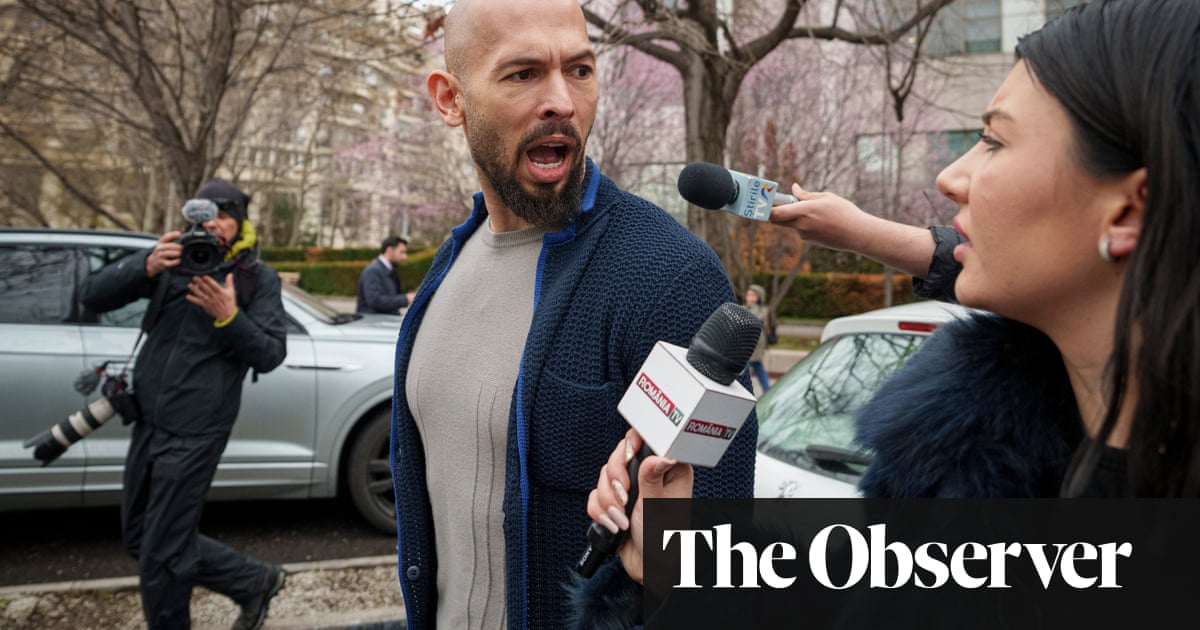There is a scene in the 1999 British romcom Notting Hill that nicely illustrates the point of Gobsmacked!, a jolly account of “the British invasion of American English”. In it, Hugh Grant, a fully fledged adult, tries to scale a fence to impress Julia Roberts, and slipping, he exclaims “whoops-a-daisy!” As Britons know, “whoops-a-daisy” is a perfectly reasonable locution for an adult man to use, but it causes Roberts, an American, to bend double laughing. As it happens, “whoops-a-daisy” isn’t included in Gobsmacked!, but its collation of so many other ludicrous British terms – “kerfuffle,” “pear-shaped”, “boffin” – that have made inroads into the US will make the average Briton proud.
Ben Yagoda’s lexicon is a spin-off from his popular blog Not One-Off Britishisms, an unwieldy title for a fun experiment in which the professor emeritus of English at the University of Delaware tracks British usages in the US. Like all popular books about language, Gobsmacked! does several things at once: it offers a lot of “fancy that!” facts about the origin of popular words and phrases. (Did you know the word “cushy” derives from Persian and Urdu, and was a military term popularised by British soldiers during the first world war?) It also gives the broader historical context of why certain phrases took off at certain times. (A combination of Geri Halliwell and a single episode of South Park is blamed for the introduction of the pejorative “ginger” to the American lexicon – which Pagoda records Ed Sheeran among others lamenting.) Above all, though, it provides a starting point for pedantic language nerds to argue over the specific meaning and provenance of words (the section on “posh” is divine).
Gobsmacked! also offers a very specific and always welcome opportunity for Britons to roll their eyes at Americans. I can’t say I encountered this during my 17 years in the US, but, for example, it reports that Americans routinely use the British phrase “full of beans” – traced in one of its earliest usages to a letter by Benjamin Disraeli in 1875 – to mean “full of shit” rather than “energetic”. Ha!
As a study aid, Yagoda relies on something called the Google Books Ngram Viewer, which measures the frequency of words across millions of texts online. In a typical example, he cites the fact that, between 2000 and 2005, use of the phrase “run-up”, a British term to describe a preliminary period, increased in the US by 50%, largely in relation to the Iraq war. This is both a necessary measurement tool and also, on occasion, a means of dragging the book into the weeds. By the end, I was a bit sick of the Ngram Viewer, but it was worth putting up with for the sheer joy of the rest of the book.
To wit, the chapter on rude words, the creation and usage of which is one of the few arenas in which we remain world class. The customary understanding of any Briton in the US is that British swear words land more rudely there than at home, most notably, of course, the verboten C-word. Occasionally, however, the reverse is true. Yagoda tracks the unhappy effect of his countrymen trying to get a handle on “wanker”, culminating in a 2011 headline in the New York Post on the occasion of Navy Seals finding pornography in Osama bin Laden’s compound: “Osama bin Wankin”. Guys! You can’t put wanking in a headline! (Sidenote: Yagoda’s account of Keira Knightley trying to explain the phrase “taking the piss out of” on CBS This Morning is very good.)
Yagoda speculates that American adoption of British terms enjoyed a surge in the 1990s, which he attributes to influential magazines in New York being run by people such as Tina Brown and Anna Wintour. Cross-pollination enabled by streaming services and the internet has also had an impact. Some Britishisms, however, have taken hold in the US purely as a side-effect of snobbery – that is, as an effort on the part of the user to assert class superiority. American women who style themselves “mummy” not “mom” or any of the other American diminutives for mother should, obviously, be put to death. Likewise, the (southern) British pronunciation of the word “aunt” – with a long as opposed to a short “a” – has taken hold and possibly outstripped the traditional US pronunciation.
There’s something very twee – a word that gets its own entry and has no precise US equivalent; “hokey” doesn’t quite cover it – about the self-conscious adoption by Americans of some British words. This summer, in outrage, I sent a photo to a friend of the menu at a restaurant in my old Manhattan neighbourhood, in which the blistered padrón peppers and other starters – “appetisers” to Americans – were presented under the horrific, pseudo-British heading “Bits ’n’ Bobs”. Make it stop! (Yagoda has a whole section on “bits and bobs”, and on “bits” by itself, for which Americans customarily use “parts”.) Anyway: no.
Sometimes penetration of a British word can be traced back to a single American journalist, often someone on the New York Times op-ed page showing off. In the case of the word “boffin”, though, it was motoring hack Dan Neil at the LA Times, whom Yagoda notes used “boffin” six times in his car column between 2008 and 2009. As in: “Chrysler’s product boffins”. And the word took off from there.
There’s a nerdy bit about date formatting, which I found fascinating, having recently had to drag myself back to the British day/month format from America’s month/day, although according to Yagoda, both US customs forms and the US state department have now capitulated to the international standard of day/month, which seems like a very rare victory for the British. There’s an inside baseball section about grammar, syntax and spelling that will be just some people’s cup of tea and takes in a reference to the Guardian’s style guide.
after newsletter promotion
And getting his own back for everybody laughing at Americans, there’s also a great section on novelists putting dicey (a Britishism Yagoda excavates thoroughly) old-world terms in the mouths of American characters. He flags Kazuo Ishiguro using “keen on” and “clever”, David Mitchell imagining Janis Joplin saying “I’ve a session tomorrow” rather than “I have” or “I’ve got”. And even Irish-Canadian writer Emma Donoghue has the American kids in her novels “washing up” rather than “doing the dishes” and using the extremely un-American “poo”, instead of “poop”.
If you are not quietly thrilled by all of this, then you’re – to employ a term whose first American use Yagoda’s linguistic sleuthing dates to the Minneapolis Star in 1967 in relation to a cat with dementia – bonkers.

 3 months ago
48
3 months ago
48













































